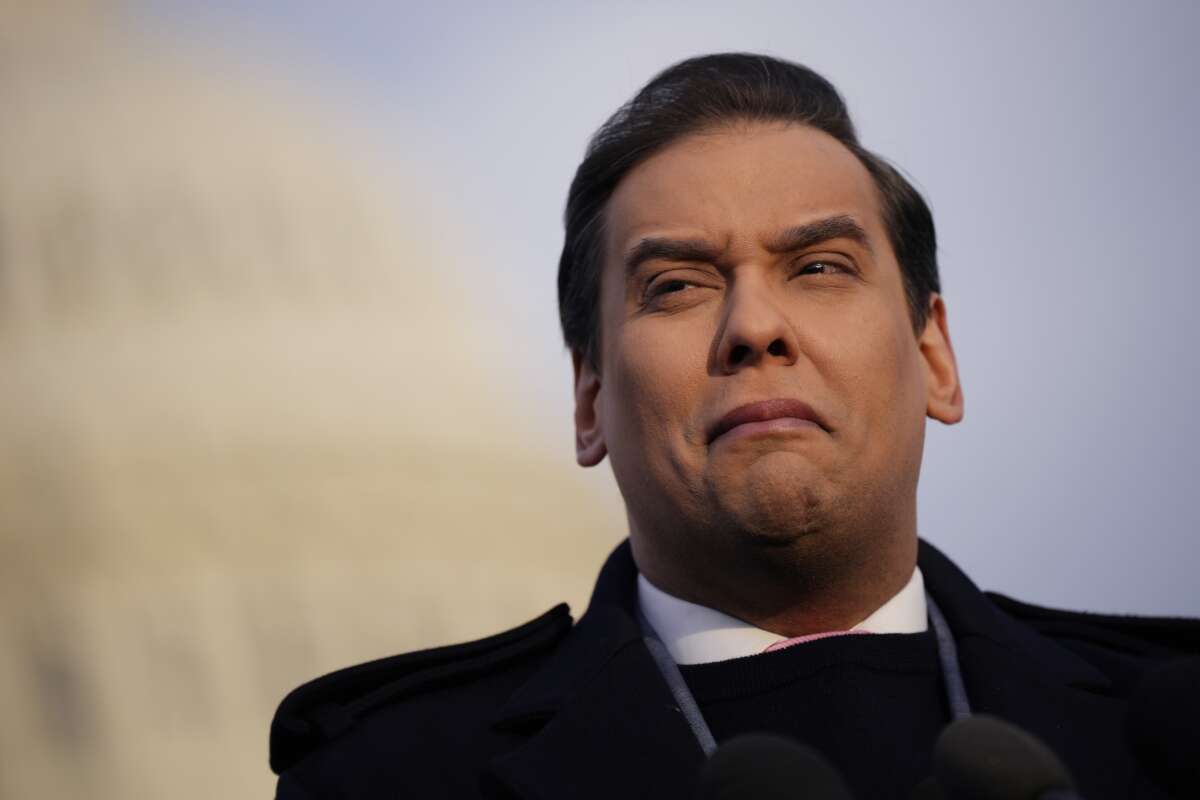
A Cautionary Fall - George Santos Sentencing Sends Tremors Through Political, Legal, and Investment Landscapes
A Cautionary Fall: George Santos Sentencing Sends Tremors Through Political, Legal, and Investment Landscapes
A Stark Reckoning for a Web of Deceit
NEW YORK — Beneath the solemn grandeur of the Eastern District courthouse, a chapter in American political scandal closed on Friday, but its aftershocks are only beginning. Former U.S. Representative George Santos, whose fabricated biography and fraudulent campaign activities stunned a nation, was sentenced to 87 months in federal prison. Judge Joanna Seybert, presiding over the packed courtroom, delivered a terse rebuke: "Mr. Santos, words have consequences."
The sentencing caps a saga marked by audacious deceptions—including the misuse of donor funds, identity theft, and pandemic-era unemployment fraud—that ultimately dismantled Santos's political career and left a deep scar on public trust. As Santos faces both restitution obligations approaching $580,000 and the reality of a July 25, 2025, prison reporting date, Washington, Wall Street, and Main Street alike are parsing the broader implications.

The Courtroom Theater: A Chilling Display of Consequences
Appearing emotional but defiant, Santos confessed to "betraying the confidence entrusted in me," a mea culpa many observers found strategically hollow. Judge Seybert openly questioned his sincerity, noting his failure to make restitution despite lucrative media appearances after his expulsion from Congress in December 2023.
Prosecutors, seeking the maximum allowable sentence, portrayed Santos's actions as a "brazen web of deceit" that weaponized public trust for personal gain. "He ascended to one of the highest offices in the land on a foundation of lies," Assistant U.S. Attorney Ryan Harris noted in a statement that resonated through the courtroom.
Outside, a crowd of former constituents gathered with placards bearing slogans like "Integrity Matters" and "Truth Counts," a visual indictment of a man who had once promised to "fight for the American dream."
Beyond the Courtroom: Markets, Lawmakers, and Donors Brace for the Fallout
Risk Premiums and Volatility Surge
Within hours of the sentencing, market analysts registered minor but telling shifts: a 2-3 basis point widening in municipal bond spreads for scandal-prone districts, reflecting a temporary uptick in perceived political risk. "Scandals like Santos's may not move the macro needle directly, but they certainly ripple through localized risk models," observed one senior risk officer at a major investment bank.
Federal Reserve surveys had already flagged "political/legal shocks" as top-tier concerns for financial stability, and Santos's high-profile downfall seems to validate that caution.
Compliance: A New Growth Frontier
Securities regulators and the Department of Justice signaled no slowdown in enforcement momentum, launching new fraud investigations within days of the sentencing. Legal-tech firms specializing in donor verification and political compliance software—such as FiscalNote GovCloud—saw immediate order-book upticks. Some sector analysts anticipate a one to two multiple expansion in EV/Sales ratios for key players.
"We expect compliance spend to rise 15-25% by 2026 for major PACs and corporates with political exposure," suggested a regulatory-affairs consultant familiar with bipartisan drafts circulating in Congress.
Legislative Tailwinds: A Crackdown in the Making
Already, multiple bills aimed at tightening campaign finance and donor-verification standards are queued for hearings on May 28 and June 19. While the legislative future remains uncertain, insiders suggest that even partial passage would materially increase operational costs for political fundraising.
Further complicating the calculus: bipartisan momentum for a "Santos Clause," a proposed amendment that would strip convicted fraudsters of congressional pensions and redirect savings to the Federal Election Commission's tech modernization fund. Analysts place the likelihood of passage at roughly 35%.
Trust and Transparency: A Fragile Rebound
After decades of decline, public trust in government saw a minor recovery in 2024, ticking up to 22% according to Pew Research. Santos's sentencing, paradoxically, could bolster that fragile rebound by showcasing an institutional willingness to police misconduct.
However, skeptics warn against over-optimism. "The structural issues—inadequate vetting, a disinformation ecosystem—are larger than any one scandal," cautioned a governance scholar interviewed shortly after the sentencing.
Advertising dynamics are shifting as well. Political dollars are migrating from "gray" ad vendors toward authenticated, retail-linked media channels such as Roku and Walmart Connect, squeezing margins for low-veracity platforms.
Wild-Card Scenarios: Navigating the Unexpected
Several plausible, if unconventional, scenarios have surfaced among political-risk consultants:
- Biometric ID mandates for political donations could emerge, pressuring fintech and payment processors to overhaul their systems.
- Thematic "Scandal ETFs" shorting firms entangled in political prosecutions might attract novelty-driven assets under management, estimated at $250 million.
- Platform deactivation waves targeting political donation apps without real-time donor verification could reshape the tech-finance landscape.
Investors’ Playbook: Lean into Compliance, Trust, and Authenticity
Investment professionals are already adjusting their exposure:
- Long plays on legal-tech and RegTech indices.
- Pairs trades favoring authenticated media (e.g., long Roku, short Meta).
- Options strategies hedging for a "good-governance premium" in ESG-linked equities.
Forward indicators to monitor include the Senate Banking and House Administration hearings and the cadence of SEC enforcement actions relative to 2024 baselines.
Closing Thoughts: A Sentence That Echoes Far Beyond One Man
George Santos's prison sentence will not singlehandedly alter the American political or financial landscape. But it crystallizes key trends: a hardening stance against political fraud, a compliance boom, and a slow, hard-earned rebuild of public trust.
For politicians, corporates, and investors alike, the message from the courtroom was unambiguous: accountability, once elusive, is now a pressing reality.